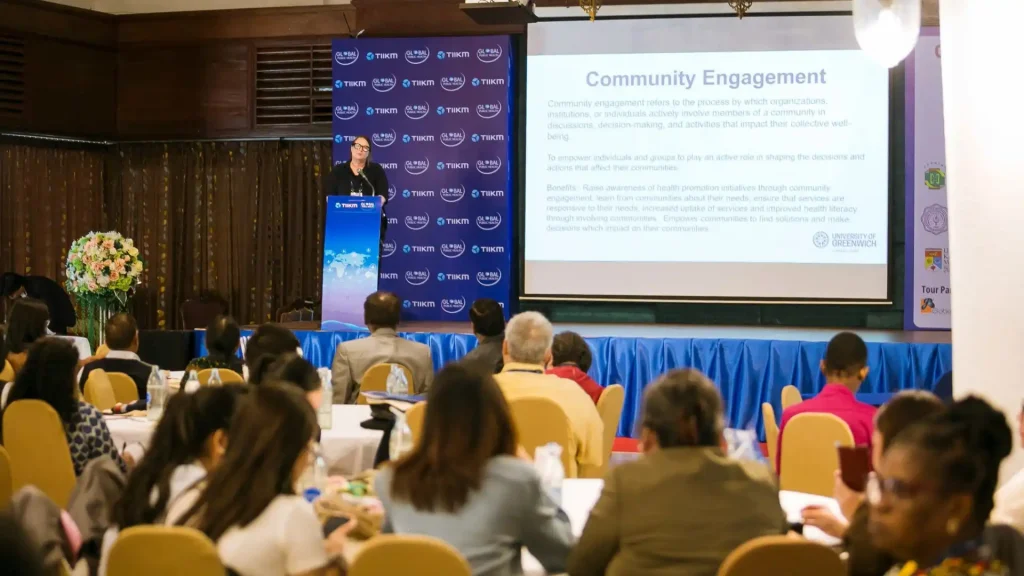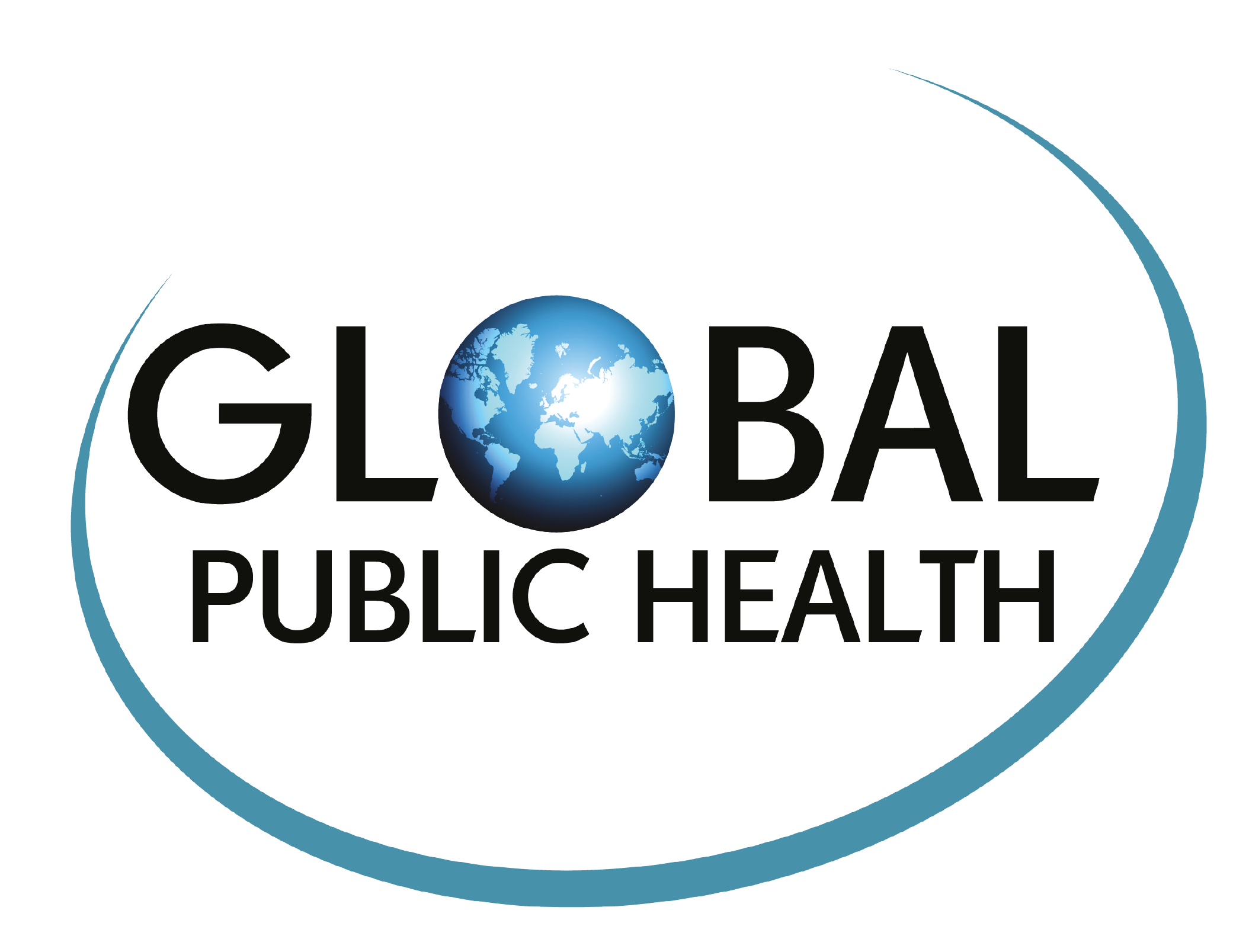Call for Papers
For the past eight consecutive years, GLOBEHEAL has served as a dynamic platform that brings together voices from across the globe—uniting researchers, practitioners, professionals, and changemakers in public health. Through these years, the conference has built a collective dialogue that encourages innovation, inclusion, and collaboration toward a more equitable and prosperous public health sector.

Key Objectives of GLOBEHEAL 2026:
- Strengthen primary healthcare through community-based approaches, vaccination programs, and telemedicine.
- Foster innovation in public health using digital health tools, AI technologies, and data-driven solutions.
- Promote global collaboration among researchers, policymakers, and industries to drive policy-focused outcomes.
- Advance health equity and universal health coverage by improving access to quality care for all, especially marginalized populations.
- Encourage evidence-based policymaking to ensure resilient and responsive health systems worldwide.
How We Achieve This:
The conference will feature:
- Insightful keynote speeches, expert panels, and interactive workshops
- Platforms for research presentation, knowledge exchange, and cross-sector networking
- Dedicated sessions for capacity building, policy development, and implementation-focused discussions
Together, we seek to translate ideas into action and build a healthier, more equitable world through shared knowledge, innovation, and collaboration.
We are delighted to invite researchers, academics, public health professionals, practitioners, and policymakers to submit their original research contributions to the 9th Global Public Health Conference: GLOBEHEAL 2026.
Conference Theme: "Positive Responses to Global Public Health: Challenges and Solutions".
Key Paper Submission Tracks and Sub Tracks
01
Health Policy, Governance, and Primary Healthcare
- Universal Health Coverage (UHC) and Health Financing Models
- Strengthening Community-Based Primary Healthcare Systems
- Public-Private Partnerships in Healthcare Delivery
- Health Policy Reforms and Their Impact on Population Health
- Ethical and Legal Considerations in Public Health Governance
02
Climate Change and Public Health
- Climate-Resilient Health Systems and Infrastructure
- Air Pollution and Respiratory Health Impacts
- Extreme Weather Events and Disaster Preparedness in Healthcare
- Food Security and Nutrition in a Changing Climate
- Vector-Borne Diseases and Climate Change
03
Non-Communicable Diseases (NCDs) and Lifestyle Interventions
- Prevention and Management of Diabetes, Hypertension, and cardiovascular diseases
- Nutrition and Physical Activity in NCD Prevention
- Tobacco and Alcohol Control Policies and Interventions
- Role of Genetics and Epigenetics in NCDs
- Workplace and Community-Based Wellness Programs
04
Infectious Disease Control and Antimicrobial Resistance (AMR)
- Emerging Infectious Diseases and Pandemic Preparedness
- Strategies for Combating AMR and Strengthening Stewardship Programs
- Vaccine Development and Global Immunization Strategies
- Role of Genomics in Infectious Disease Surveillance
- Infection Prevention and Control in Healthcare Settings
05
Maternal, Child, and Adolescent Health
- Innovations in Maternal and Neonatal Care
- Adolescent Sexual and Reproductive Health Education
- Preventing and Managing Childhood Malnutrition
- Addressing Adolescent Mental Health and Risk Behaviors
- Access to Quality Prenatal and Postnatal Care
06
Mental Health and Psychosocial Well-being
- Mental Health Integration into Primary Healthcare
- Digital and AI-Based Mental Health Interventions
- Workplace and School-Based Mental Health Strategies
- Post-Trauma and Disaster Mental Health Interventions
- Role of Social Support Systems in Mental Health Management
07
Social Determinants of Health and Health Equity
- Economic Inequality and Its Impact on Healthcare Access
- Gender and Racial Disparities in Health Outcomes
- Housing, Sanitation, and Urbanization Effects on Public Health
- Health Literacy and Community Engagement Strategies
- Policies for Achieving Health Equity in Low-Resource Settings
08
Innovations in Public Health and Digital Healthcare
- AI and Big Data in Public Health Decision-Making
- Telemedicine and Remote Patient Monitoring
- Wearable Technologies and Digital Health Innovations
- Blockchain and Cybersecurity in Healthcare Data Management
- Mobile Health (mHealth) Interventions for Underserved Populations
09
Community Based Social Innovation in Health
- Empowering Communities through Health Education and Awarenes
- Digital Health Innovations for Community Engagement
- Addressing Health Inequities through Community-Led Interventions
- Collaborative Approaches to Mental Health in Local Communities
- Sustainable Models for Community-Driven Health Systems
You may send your abstract according to the abstract guidelines. Different registration packages of the conference provide you so many benefits including food, conference pack, abstract book, eligibility to attend the technical sessions, career development workshops, publication opportunities etc. You can select different presentation modes according to your preference. Presentations awards are one of the key elements of the conference. The presenters at the conference will be evaluated by a special committee of academic experts during the conference and the best presenters will be awarded at the award ceremony.
Abstract Guidelines
To facilitate the submission process and the subsequent follow-up process, please consider the following guidelines, information, tips, terms and deadlines mentioned.
Submit your details & get the template!
Basic Format for Abstracts
- An abstract is a compendious summary of a research paper’s substance including its background, purpose, methodology, results, and conclusion.
- It should be one paragraph with a word limit of 175-275.
- Keywords should be provided as a must (no more than 06 words).
- Keywords should be written in lowercase letters (Not applicable to names/scientific names) and should be separated with commas.
- Please do not include subheadings, bullets, lists and header/footer in the abstract.
- Abstract titles should be short, but descriptive. Informative titles, indicating key points are encouraged. Abbreviations should not be used in the title.
- Acronyms should be written in full the first time, mentioned in the text, followed by the abbreviation in parentheses.
- Always follow SI Units.
- Scientific names must be in Italic.
- Use a negative exponent (e.g. kg m-3) and do not indicate units as divisions (e.g. kg/m3). Chemical formulae should be written in a standard form such as “CaCO3”, not as “CaCO3”. Use a zero before decimal points such as “0.45,” not “.45.”
- There shall be no citations or references in the abstract specifically. If there is a need to cite references, please provide the sources in brackets.
About the Reviewing Process
- Your abstract will undergo a double-blind peer review by the International Scientific committee after its receipt.
- Results of the abstract review will be sent to the author within two weeks of submission.
- The Conference Chair serves as the head of the scientific committee and will take the final decision on abstracts.
- Acceptance or rejections of the paper will be sent to you with reviewer comments.
- If a revision is required, the revised abstract must be sent back within a week.
- If your abstract is accepted, you will be invited to register for the Conference.
Font
- Title: Times New Roman, 12 points, Upper case, Centered text in bold
- Body: Times New Roman, 11 points; Line spacing: 1, one column of text
Affiliations
- Affiliations should be indicated with superscript Arabic numbers appearing at the end of surname/family name.
- A superscript asterisk shout be used for the corresponding author
- Names of affiliations should be given including the country.
- If there is more than one name and address, they should be related by superscript numbers.
- Eg:- Surname INITIALS1, Surname INITIALS1* and Surname INITIALS2 1Department, Faculty, University, Country 2Department, Institute, Country *author@gmail.com (*Email address of the corresponding author)
General Instructions
- Abstracts should represent the original work.
- Informative abstracts and critical abstracts are accepted.
- The Abstract should be written in English.
- Please indicate one – three most relevant themes for your abstract from the conference tracks.
- Please send in a brief biography together with the Abstract (An example is given in the abstract template).
- Please download the abstract template and follow the format carefully.
- Documents that do not conform to the guidelines will be asked to be revised.
- Documents received after the given deadline, due to any reason will not be accepted unless the deadline is extended.
- The abstract should be submitted in the format of MS Word (.doc or .docx) document.
Important information for the Co-Authors
- Please note a single registration permits only one person to attend the conference
- If the co-authors would like to attend the conference their registration and payment are required to be made independently.
- However, they will be given a discount of 15% from Non-Presenter’s (Listener’s) Registration Fee.
- The certificate will be issued to the co-authors upon their registration/payment for the conference.
- Please make prior communications with the organizing committee regarding this matter to enjoy the benefit of the discount.
